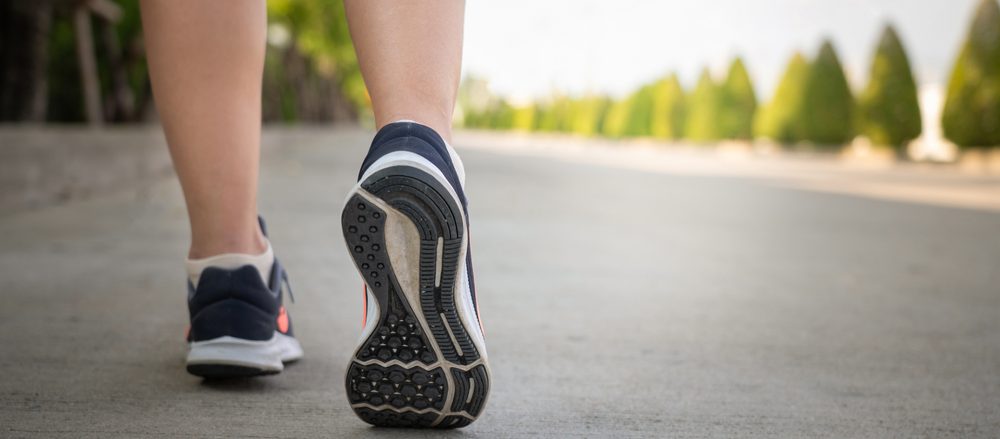‘Getting my steps in’ is a phrase heard all too often these days, and you’ve likely became accustomed to seeing your colleague or family member pacing up and down the room to get those so-called steps in. But, what is the obsession with steps? Why does it always have to be the lucky number 10,000? And, the winning question – is it enough to count as exercise?
If you cast your mind back to the times of lockdown, gym’s closed and our exercise routines came to a sudden halt. Many of us resorted to home workouts and walks to keep up with our fitness (and generally save us from boredom). We all took full advantage of the designated once a day outdoors exercise where we walked for as long as our legs could take us – and it seems from then, walks just kind of stuck and alas, the phrase ‘getting out steps in’ was born!
Post-pandemic, now working norms have shifted, we all seem to go for a lunchtime stroll while WFH as a way to step back from the screens and look after our physical and mental health.
Even us all at Everyone Health know all too well the importance of getting our steps in. In May, we took up (and successfully completed) a challenge to mark National Walking Month where we collectively walked 2606 miles to each of our service locations and back. You can read more about that here.
Do we all need to get in 10,000 steps?
You’re probably used to hearing that 10,000 steps is the golden number we should all be aiming for, but this may be a little unattainable, especially for those who work sedentary jobs and don’t have a walking pad or treadmill to hop on.
The good news is that the 10,000 number is a myth. Yes, it can make a big difference to your health if you do that many steps – but even just going for a 30-minute daily walk (which typically clocks in to be about 3500 steps) can help to boost your overall health and wellbeing.
So there you have it – start small if you’re setting a daily step goal, and from there on you can increase it to a number that suits your health goals and lifestyle.
Do we all need to get in 10,000 steps?
It’s a common misconception that if we’re not dripping head to toe in sweat after exercise, then we haven’t worked hard enough and it doesn’t count – but in reality, that couldn’t be further from the truth.
The NHS website states that the recommended amount of weekly exercise is 150 minutes of moderate-intensity exercise – and luckily for us, walking counts towards this number!
If your walking pace perhaps isn’t speedy enough to classify as moderate-intensity exercise (think brisk or power walking), then those steps still contribute to improving your overall health and help to prevent any problems caused by sitting around for too long.
If you want to switch up your daily strolls to boost your fitness, you can always add some light ankle or wrist weights or add in some hills on your walk to increase the incline. If you don’t live in a particularly hilly area, go on the search for some stairs!
Now, what are you waiting for? Lace up your trainers and head out of the door. Happy walking, all!

